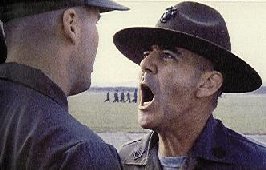Good Will (Not) Studying
One of my favorite scenes from the tortured genius weepy, Good Will Hunting, is the montage of Matt Damon working with an eccentric MIT math professor. The professor slaps a transparency on an overhead projector, splashing a series of graph structures on the screen. (There’s a professor on my floor here at MIT who actually does this.) Will stares at the screen for a thoughtful, brooding moment. Then he stands, grabs a marker, and adds some extra edges. They slap five.
Proof solved!
To American students, this vision of the genius who instantly solves problems has become the platonic ideal for a star undergraduate. This leads to the belief that the best students complete even the hardest work easily. Therefore, if you want to prove that you’re a top student you need to take the hardest possible course load and get the best possible grades. The goal is to make it seem like your brain is so supercharged that you can swat aside problem sets and exams like Matt Damon solving proofs on the MIT blackboard.
I call this the Good Will Hunting (GWH) strategy for becoming an academic star. Here’s the thing about this strategy: if you can pull it off, it will yield rewards. People are impressed by the 4.0 student with the triple major. But there are two problems:
- Most people who attempt the GWH approach don’t pull it off.
- It is incredibly stressful and painful, and will probably send you into deep procrastination.
As far as I can tell, many students view the GWH strategy as the only way to stand out academically. (Here at MIT, I had a student tell me that if she didn’t take a killer course load people would just assume she’s not smart.)
In this post, I want to explain a different, more sustainable path to academic stardom…
Read more




